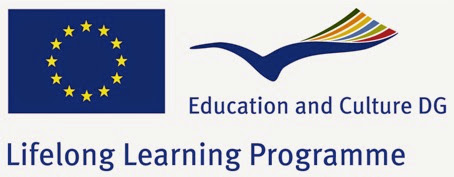 Resilience dictionary
source http://www.stockholmresilience.org/4.aeea46911a3127427980004355.html
Resilience dictionary
source http://www.stockholmresilience.org/4.aeea46911a3127427980004355.html
Here you find a list of quick definitions to the many different terms that are used within resilience research.
Resilience is the capacity to deal with change and continue to develop.
Social-ecological systems are linked systems of people and nature. The term emphasizes that humans must be seen as a part of, not apart from, nature — that the delineation between social and ecological systems is artificial and arbitrary. Scholars have also used concepts like ‘coupled human-environment systems´, ‘ecosocial systems´ and ‘socioecological systems´ to illustrate the interplay between social and ecological systems. The term social-ecological system was coined by Fikret Berkes and Carl Folke in 1998 because they did not want to treat the social or ecological dimension as a prefix, but rather give the two same weight during their analysis.
Ecosystem resilience is a measure of how much disturbance (like storms, fire or pollutants) an ecosystem can handle without shifting into a qualitatively different state. It is the capacity of a system to both withstand shocks and surprises and to rebuild itself if damaged.
Social resilience is the ability of human communities to withstand and recover from stresses, such as environmental change or social, economic or political upheaval. Resilience in societies and their life-supporting ecosystems is crucial in maintaining options for future human development.
Ecosystem Services are the benefits people obtain from ecosystem processes. These include water and air purification, flood control, erosion control, generation of fertile soils, detoxification of wastes, resistance to climate and other environmental changes, pollination, and aesthetic and cultural benefits that derive from nature.
Vulnerability refers to the propensity of social and ecological system to suffer harm from exposure to external stresses and shocks. Research on vulnerability can, for example, assess how large the risk is that people and ecosystems will be affected by climate changes and how sensitive they will be to such changes. Vulnerability is often denoted the antonym of resilience.
Institutions are the norms and rules that shape human interactions. They can be formal (such as rules and laws) or informal (such as norms, conventions and self-imposed codes of conduct). Institutions, such as property rights, can be used to link society to nature with the aim to control people´s use of the environment for both ecological and human long-term objectives.
Complex Adaptive Systems (CAS) include companies, the weather, our immune systems, the economy, ecosystems, single cells and brains. In these CAS simple rules of cause and effect do not apply, they are complex, unpredictable and constantly adapting to their environments. Hence, they are far from being machines that you can take apart and investigate the parts to understand the whole.
Response diversity refers to the multitude of responses to environmental change and disturbances, among species contributing to the same ecosystem function. This kind of diversity plays a crucial role in sustaining the resilience of ecosystems to cope with disturbance and change. If all species within a functional group (e.g. pollinators, seed dispersers or decomposers) are equally sensitive to a particular disturbance the system will have low response diversity and be vulnerable to that particular disturbance.
Anthropocene is a term coined in 2000 by the Nobel Prize winning scientist Paul Crutzen. It describes the most recent period in the Earth's history, starting in the 18th century, when the activities of humans first began to have a significant global impact on the Earth's climate and ecosystems.
Natural Capital is an extension of the traditional economic notion of capital. The term was coined to represent the natural assets that economists, governments, and corporations tend to leave off the balance sheets. Natural capital can be non-renewable resources, like fossil fuels and mineral deposits; renewable resources, such as fish or timber; or ecosystem services (for instance the generation of fertile soils, pollination, or purification of air and water).
Social Capital is a concept used in various fields, from economics and political science to sociology and natural resources management. Broadly, it refers to social relations and among individuals and the norms and social trust which they generate and which facilitate coordination and cooperation for mutual benefit.
.
Adaptive co-management is an approach based on collaboration among multiple actors, for instance agencies, researchers and local resource users. Management of everything from local fisheries to global climate change is regarded as controlled experiments, with the consequent need for monitoring, evaluation and constant improvement. According to a growing number of scholars such management that is flexible and open to learning stimulates a sustainable development by enhancing resilience in coupled human and natural systems.
Blue and green water: ‘Blue water´ is the liquid water in rivers, lakes and ground water. ‘‘Green water´ is the water that feeds the system as rain and forms soil moisture that is absorbed by plants (and then exhaled as vapour flow). When discussing the water needed to produce food for an expanding human population we tend to neglect the green water flows even though most food production comes from rain-fed farming, not least in hunger and poverty stricken areas with rapid population growth.
Urban sprawl is a phenomenon that plagues cities in both developing and industrial countries. It is an uncontrolled or unplanned extension of urban areas into the countryside that tends to result in an inefficient and wasteful use of land and its associated natural resources.
